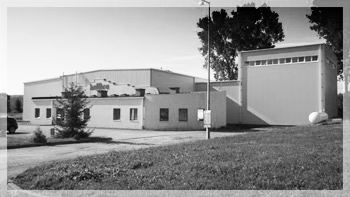KALIBRA PRODUCENT FOLII I OSŁONEK WIELOWARSTWOWYCH
KALIBRA MANUFACTURER OF MULTILAYER FILMS AND CASINGS
ABOUT US

KALIBRA Sp. z o.o. was established in 1998 within the Special Economic Zone in Kamienna Góra. Our Company is located in a very picturesque place away from the hustle and bustle of the city, but close to main roads and motorways. The Company is subject to high hygiene and sanitary requirements, and its operations are constantly supervised by SSEMP in Kamienna Góra.
The subject of our activity is the production of plastic products. Our main efforts go into the creation of high-quality films and five-layer barrier casings for cured meats. We can boast an exceptionally wide range of colours and sizes of our products. We do not stop there. In 2012, we purchased a new technological line, which allowed us to introduce innovative and high-barrier food packaging to the market.
We continually strive to improve both the quality of our products and the quality of our customer service. We ensure continuous development through new investments, employee training and market analysis. We are committed to the satisfaction of our customers.
INNOVATION - OUR TECHNOLOGY
At Kalibra Sp. z o.o., the production of PAPE soft film uses the blown film technique, with an innovative cooling system for the extruded sleeve. Rapid cooling is achieved by passing the blown film sleeve through a water bath tank at a suitably low temperature. With rapid cooling, the amorphous or amorphous structure is frozen, resulting in a significant proportion of it relative to the crystalline structure. The physical and mechanical properties of the film, including its transparency, gloss and thermoformability, depend on the proportion of the crystalline phase and are all the more favourable the smaller the proportion of the crystalline phase in relation to the amorphous. A similar phenomenon occurs in the production of glass.
At this point, it is worth citing a publication by BASF, one of the main producers of a polyamide with the trade name Ultramid. [1] It presents the relationship between the crystallinity of a 50 µ thick PA film made from Ultramid, expressed as a percentage of opacity, and the thermoformability, defined as the thickness, at the points of greatest film opacity, in the moulded shapes. At a crystallinity of 38 per cent and an opacity of 2.8 per cent, the measured thickness of the film at the point of greatest opacity was 12µ. At a crystallinity of 20 per cent and an opacity of 0.4 per cent, the film thickness at the point of greatest opacity, already significantly greater, reached 18µ.
The high transparency of the film produced at Kalibra Sp. z o.o., with a light transmission coefficient clearly exceeding 90 %, testifies to the high proportion of the amorphous phase and thus to the extremely good thermoformability of the multilayer films produced. Such a high proportion of the amorphous phase is not achievable with other PA coextruded film manufacturing technologies.
Kalibra produces co-extruded multilayer films with total thicknesses from 65 to 250µ. These are 6-layer films with a PA/adh*/PA/adh/PE/PE structure, where adh* stands for the binding polymer. An additional advantage is the separation of the PA layer into two independent layers, providing greater strength to the moulded packaging than is achieved with a single layer of the same thickness. This is especially true for corner packs and thus makes it possible to increase moulding depth.
Kalibra’s range of multilayer films includes variants with EVOH to further increase the film’s oxygen barrier properties. In addition, it is possible to use a PP sealable layer, which consequently also allows the pasteurisation of products packaged in this type of film.
An advantageous feature in the processing of the co-extruded multilayer films produced at Kalibra is their particularly high puncture resistance. A good illustration of this can be found in the packaging of products with very sharp ends, such as chicken wings, for example, as is the case with one of Kalibra’s film customers, where it was possible in this instance to use a film that was more than 10% thinner than the one used previously without any negative impact on the packaging process or the quality of the packaging produced.
1. Goetz W. Crystallinity of Polyamide films, Company presentation BASF AG, Duisburg, April, 2005
